Search
Did you mean: Vulcan?
Search Results
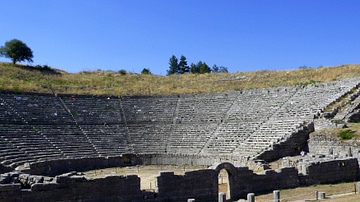
Definition
Dodona
Dodona in Epirus, north-west Greece, lies in a valley on the eastern slopes of Mt. Tomaros and was famed throughout the ancient Greek world as the site of a great oracle of Zeus. The site was expanded in the Hellenistic period, and one of...
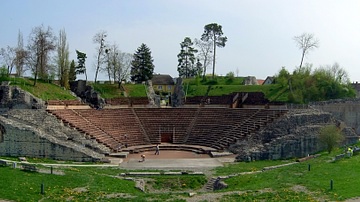
Definition
Augusta Raurica
Augusta Raurica is a former Roman colony and city located on the Rhine River some 11 km (7 miles) east of the modern Swiss city of Basel, in between the towns of Kaiseraugst and Augst. Founded by Lucius Munatius Plancus (90 BCE - 15 BCE...
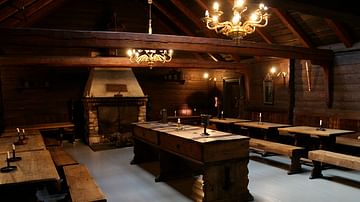
Image
Jakobsfjorden and Bellgården's Schøtstue, Bergen
The "schøtstue" was a traditional building and assembly room of the Hanseatic merchants in Bergen during the Middle Ages. The picture is of the Jakobsfjorden and Bellgården's Schøtstue, which is part of the Hanseatic Museum and Schøtstuene...

Article
Reforms of Augustus
Emperor Augustus (27 BCE – 14 CE) accomplished much during his time on the Roman throne, far more than many of his successors. According to historian Mary Beard in her book SPQR, he transformed the structures of Roman Empire, including its...
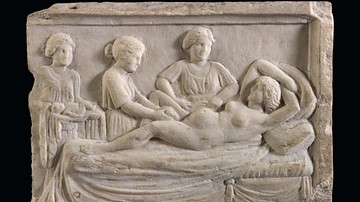
Article
Childbirth in Ancient Rome
Childbirth in ancient Rome was considered the main purpose of marriage. Roman girls married in their early teens, and in elite society, some married before they reached puberty. The legal age for marriage was 12 for a girl; 15 was accepted...

Article
Beer in the Ancient World
The intoxicant known in English as `beer' takes its name from the Latin `bibere' (by way of the German `bier') meaning `to drink' and the Spanish word for beer, cerveza' comes from the Latin word `cerevisia' for `of beer', giving some indication...

Article
Letters & Post in the Ancient World
Letters and their delivery via a state communication system was a feature of many ancient cultures. The writing medium may have differed but the Mesopotamians, Egyptians, Greeks, Romans, and Incas all had the means to send messengers and...
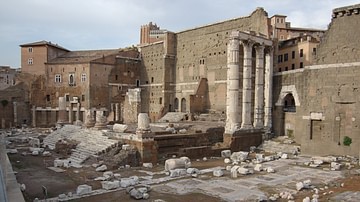
Article
Rome under the Julio-Claudian Dynasty
The Julio-Claudians were the first dynasty to rule the Roman Empire. After the death of the dictator-for-life Julius Caesar in 44 BCE, his adopted son Octavian - later to become known as Augustus (r. 27 BCE - 14 CE) - fought a civil war against...

Article
Astronomy in the Scientific Revolution
The astronomers of the Scientific Revolution rejected long-held theories of ancient thinkers like Claudius Ptolemy and Aristotle and instead set out to systematically observe the heavens in order to create a model of the universe that fit...
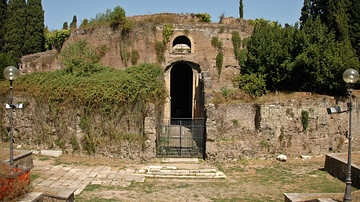
Article
Mausoleum of Augustus
The Mausoleum of Augustus was actually one of the first of many large building projects undertaken in the reign of Rome's first emperor. When the Mausoleum was completed in 28 BCE, it was easily the biggest tomb in the Roman world, a record...